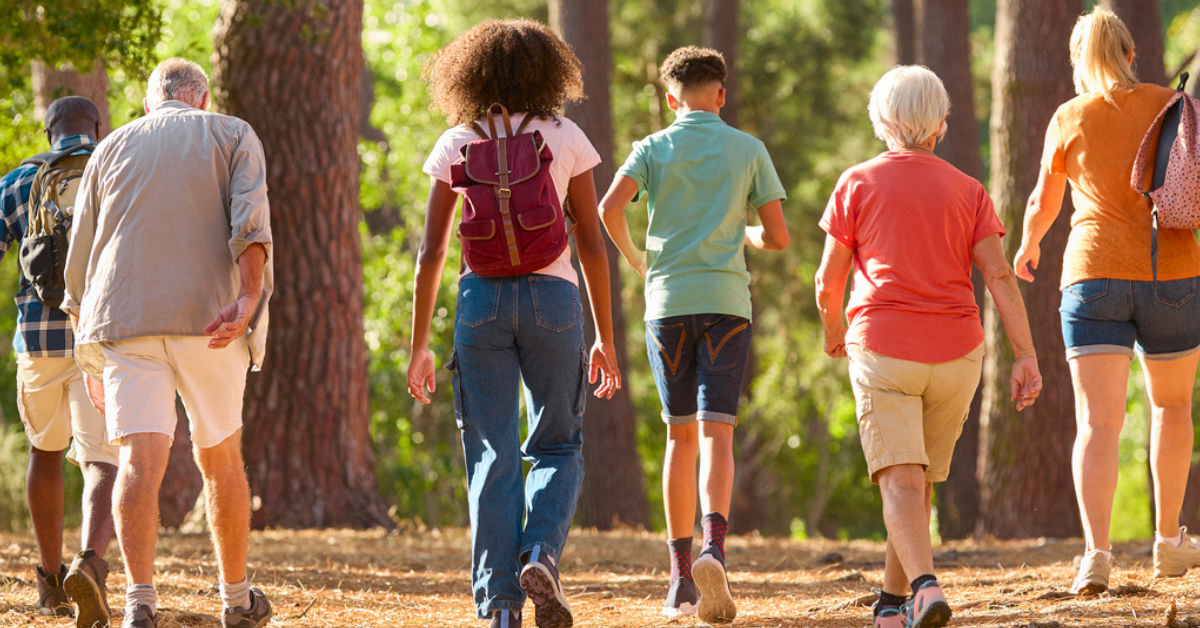
Staying Safe in Extreme Heat When You Have Cancer
-
It’s hot outside—and that can be dangerous, especially for people with cancer.
There are a few reasons for the added risk:
- Some medications used in cancer treatment can make it more difficult for your body to regulate its temperature.
- Chemotherapy and radiation can make your skin more sun-sensitive.
- Side effects of treatments, or of the cancer itself, can dehydrate you.
People with cancer may also have added risk factors. For example, those age 65 and older and those who have other chronic conditions are more susceptible to heat-related illness.
But there’s good news too: With a bit of planning and a few simple strategies, you can escape the summer heat and stay cool and safe.
Don’t sweat it: 4 Tips for keeping cool
1. Embrace air conditioning. The best way to avoid extreme heat is to stay in an air-conditioned place as much as you can, especially during the hottest hours of the day. If your home isn’t air-conditioned, go to a place that is, like a friend or family member’s house, a coffee shop, a library, or an indoor shopping center. There may be heat-relief shelters near you; check your local health department’s or city government’s website.
2. Keep moving—with caution. Physical activity during your cancer journey is important, but be careful. Save your exercise for the morning or evening, when it’s cooler, and don’t exert yourself too much. Be sure to drink plenty of water. This is always important, but especially if you’re being physically active.
Avoid drinks that contain caffeine and alcohol in hot weather: They can dehydrate you.
3. Plan ahead. If you have appointments, treatments, or errands, try to schedule them in the morning. Stay current with weather forecasts, and treat extreme heat like you would a severe winter storm. If your area is expecting high heat, prepare for it so that you’re cool and comfortable, with plenty of nutritious food and fluids handy, when the temperature rises.
4. Dress for the heat. Opt for loose-fitting, breathable, lightweight clothing. When you’re outside, wear sunscreen with an SPF of at least 30 on all exposed skin, plus a broad-brimmed hat and sunglasses.
Concerned about your vitamin D levels? While the sun does help your body make this essential vitamin, you can ask your doctor about taking supplements.
Recognize the warning signs of heat illness
Heat-related illnesses include heat stroke and heat exhaustion. These two conditions have many symptoms in common, such as:
- Dizziness.
- Headache.
- Nausea.
- Fainting.
Symptoms of heat stroke also include:
- Body temperature of 103º or above.
- Hot, damp, or dry skin.
- Fast pulse.
- Confusion.
Heat exhaustion may cause:
- Profuse sweating.
- Clammy, cold skin.
- Weak pulse.
- Fatigue.
If you experience any of these symptoms, move to the coolest spot in the house. Put cold, wet cloths on your body or take a cool bath or shower. If symptoms get worse or last more than an hour, call 911.
Stay in contact with your care team
Ask your care team how your cancer or your treatment might affect your risk for heat-related illness.
At Fox Chase Cancer Center, your care team is here for you at every step of your journey. We’ll help you understand your condition and treatment—and how to manage your risks and side effects to live your best life during and after cancer treatment. Call 888-369-2427 or request an appointment online.
